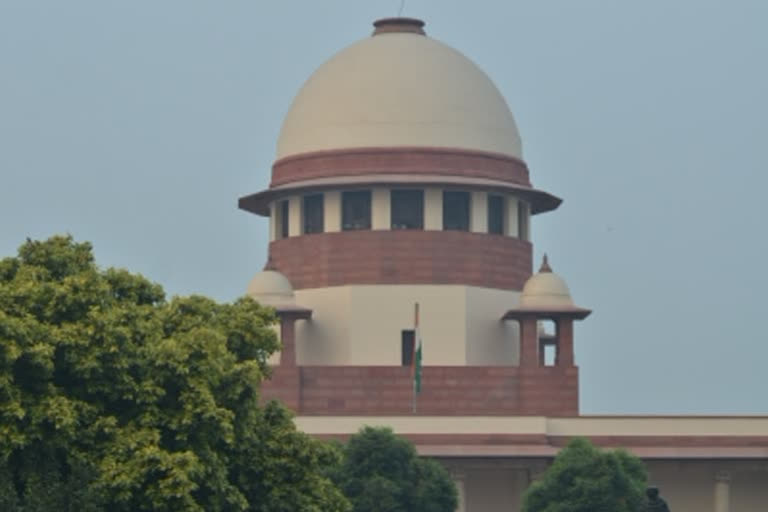New Delhi: The Supreme Court said on Wednesday educational institutions will not be entitled to approval under section 10(23C) of the Income Tax (IT) Act where their objective appears to be "profit-oriented". Section 10 of the IT Act exempts from taxation certain classes of income.
A bench headed by Chief Justice U U Lalit noted that one of the issues which required resolution in the matter before it pertained to the correct meaning of the term 'solely' in section 10 (23C) (vi) of the Act which exempts income of "university or other educational institution existing solely for educational purposes and not for purposes of profit". "Where the objective of the institution appears to be profit-oriented, such institutions would not be entitled to approval under section 10(23C) of the IT Act," said the bench, also comprising Justices S R Bhat and P S Narasimha.
It observed, "Education ennobles the mind and refines the sensibilities of every human being and helps us discern between right and wrong by removing the darkness of ignorance." The bench also noted that in a knowledge based, information driven society, true wealth is education and access to it. The top court delivered its verdict on a batch of appeals which raised the issue of rejection of the appellants' claim for registration as a fund or trust or institution or any university or other educational institution set up for the charitable purpose of education, under the Income Tax Act, 1961.
The appeals were filed against the judgement delivered by the Andhra Pradesh High Court which had held that the appellant trusts which claimed benefit of exemption under section 10 (23C) of the IT Act were not created 'solely' for the purpose of education. The apex court held the requirement of a charitable institution, society or trust etc, to 'solely' engage itself in education or educational activities and not engage in any activity of profit, means that such institutions cannot have objects which are unrelated to education.
"In other words, all objects of the society, trust etc, must relate to imparting education or be in relation to educational activities," it said. The bench also overruled two previous judgements of the apex court to the extent of reasoning and conclusions pertaining to the interpretation of expression 'solely'.
"This court is further of the opinion that since the present judgment has departed from the previous rulings regarding the meaning of the term 'solely', in order to avoid disruption, and to give time to institutions likely to be affected to make appropriate changes and adjustments, it would be in the larger interests of society that the present judgment operates hereafter," it said. "As a result, it is hereby directed that the law declared in the present judgment shall operate prospectively," the apex court said.
While dismissing the appeals, the bench observed the subject of education is "vast, even sublime" and there is scarcely any generation that has not extolled the virtues of education and sought to increase knowledge. It noted the basic provision granting exemption enjoins that the institution should exist "solely for educational purposes and not for purposes of profit" and this requirement is categorical. It said the trust or educational institution, which seeks approval or exemption, should solely be concerned with education or education related activities.
"If, incidentally, while carrying on those objectives, the trust earns profits, it has to maintain separate books of account. It is only in those circumstances that 'business' income can be permitted-provided, as stated earlier, that the activity is education, or relating to education," the bench noted. In its verdict, the top court said, "At the same time, where surplus accrues in a given year or set of years per se, it is not a bar, provided such surplus is generated in the course of providing education or educational activities."
It held that wherever registration of trust or charities is obligatory under state or local laws, the concerned trust, society, other institution etc. seeking approval under section 10(23C) should also comply with the provisions of such state laws. "This would enable the commissioner or concerned authority to ascertain the genuineness of the trust, society etc. This reasoning is reinforced by the recent insertion of another proviso of section 10(23C) with effect from April 1, 2021," the bench said.
It said every social order accommodates, and even cherishes, charitable endeavour, since it is impelled by the desire to give back, what one has taken or benefitted from society. "Our Constitution reflects a value which equates education with charity. That it is to be treated as neither business, trade, nor commerce, has been declared by one of the most authoritative pronouncements of this court in TMA Pai Foundation," it said. "The interpretation of education being the 'sole' object of every trust or organisation which seeks to propagate it, through this decision, accords with the constitutional understanding and, what is more, maintains its pristine and unsullied nature," the bench added. (PTI)



